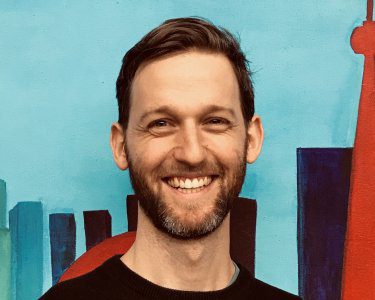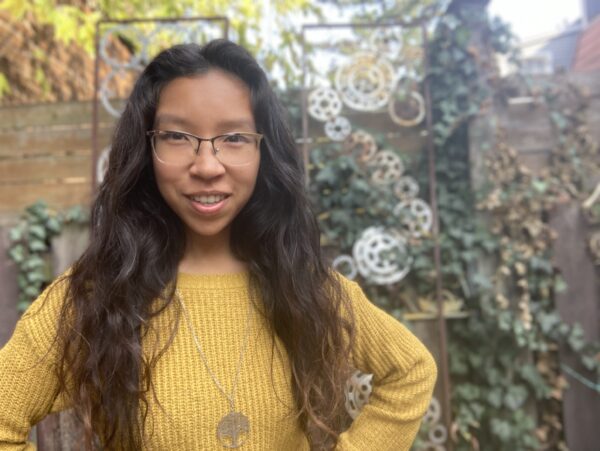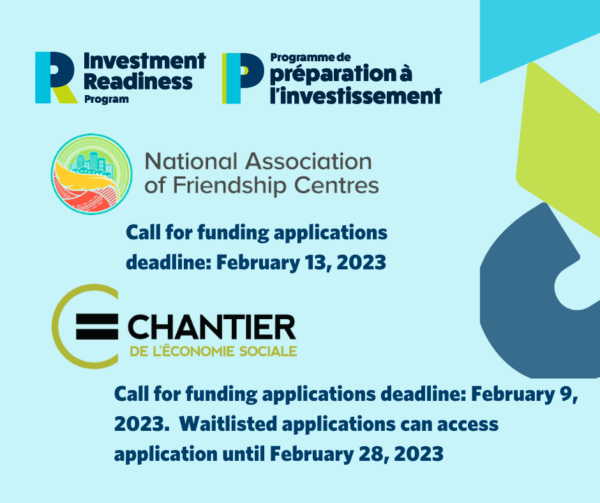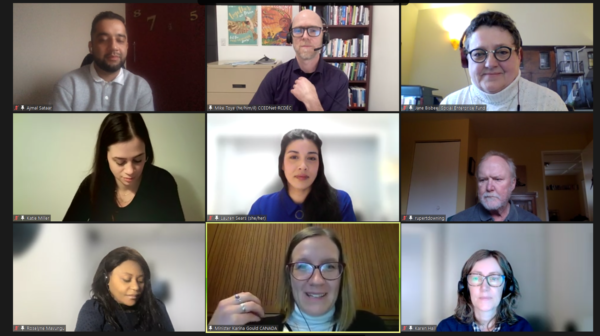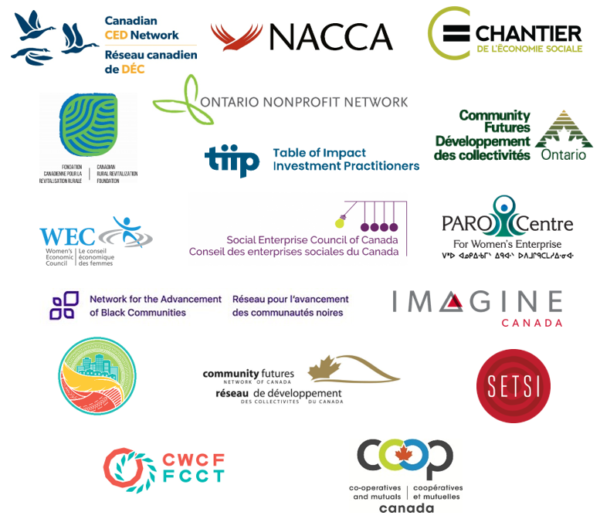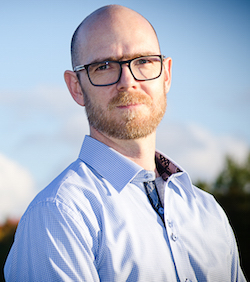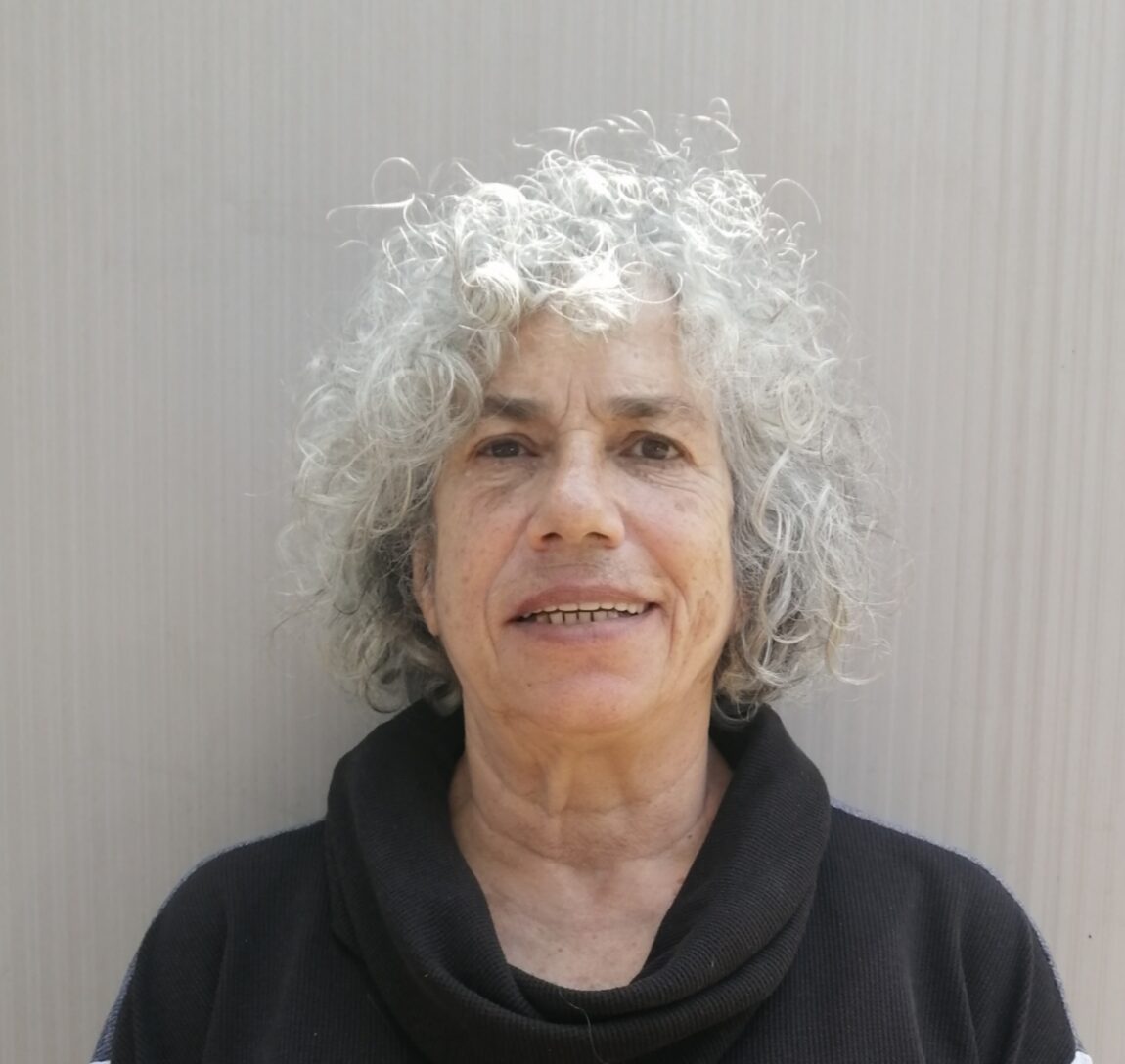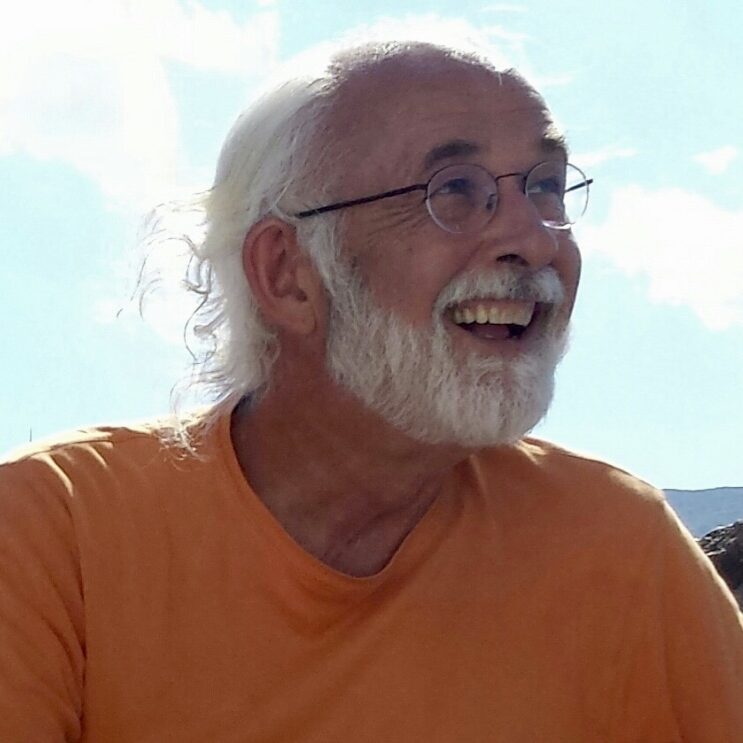Sign up today for a CLP intro session, 2-day training, or 6-day intensive!
All programs are designed to help non-profit, community-based, and social purpose leaders, managers and organizations navigate challenge, change and opportunity successfully. This unique learning environment is intentionally designed to respond to your experience. You can expect to refine and build your leadership skills and apply what you’ve learned in new, meaningful and purposeful ways. You’ll gain tools to help strengthen your teams and encourage problem solving and creativity, so that you can collectively navigate and effectively respond to change, innovation and the current priorities of your work environment.
Find more information about each program, including registration links, below:
- Leading Through Change: An Introduction to CCEDNet’s Community Leadership Program
- Navigating Change for Leaders Training: 2-day
- Spring Leadership Intensive: 6-day
- Important Note on Program Accessibility
- Your Facilitator: Suzanne Gibson
Leading Through Change: An Introduction to CCEDNet’s Community Leadership Program | Zoom event
- To discuss the complex changes we are all experiencing in our leadership roles
- To examine and reflect on the qualities of an effective change leader
- To explore the importance of adapting one’s leadership style to different situations – a self-assessment will help you will better understand your preferred leadership style(s) and ideas for positive changes
- To understand and discuss concrete ways to foster your own resiliency to ensure you are poised to be a great leader
For whom: This course is for those wanting an introduction to the 2-day and 6-day Community Leadership Programs and/or those who are looking to inspire and deepen their leadership practice.
Cost: Free
When: Wednesday, March 22, 2023 from 12:30PM – 3:00pm Eastern Time
Limited Capacity: Please register early as space is limited, each session will be capped to ensure each participant has an engaging and impactful experience. If the sessions are booked, please contact Adriana Zylinski to be placed on the waiting list.
Important Registration Note: This session will not be recorded. Due to limited capacity, we expect registration indicates your confirmed attendance. Thank you in advance.
Register for Intro Session on March 22, 2023
Navigating Change for Leaders Training: 2-day | Zoom event
If you are leading any change elements in your organization, and need to implement major changes – this is the course for you. Organizational change is not easy. Oftentimes it has challenges and is incumbent on strategic, thoughtful leadership. How you navigate change and support others to move through it is critical. Arrive with a change issue in hand, apply leading change management principles, approaches and frameworks and leave with an action plan that will energize and best support your teams and stakeholders so together your vision for change can be achieved.
Learning Objectives:
Module 1 (7 hours):
Understand organizational change through the change curve and Bridges Transition Model; analyze the change in more detail to better inform your problem solving and response(s), develop the script and skills to participate in a change conversation based on principles of effective communication; explore the essential skills of a change leader, assess your own strengths and weaknesses and commit to an action(s) or strategy/ies to improve your capacity to lead through change.
Module 2 (7 hours):
Examine how to most effectively navigate uncertainty and ambivalence; embed resilience within your team(s) and your own leadership style; explore the context of the change to leverage strengths and opportunities and mitigate limitations, and threats; begin to map out an action plan that helps you and your stakeholders to intentionally and strategically navigate change; reflect on the posture you want to embody as a change leader
For whom: For those supporting employees through change or overseeing organizational change and looking to build a proactive response and plan through the transition.
Prerequisite: Due to the applied nature of this course you will be required to commit to approximately 1 hour of self reflection in advance of the first module and approximately 2 hours of self-reflection in advance of the second module.
When:
- 9am – 4pm ET on May 30 and June 9, 2023 (2 days)
Course fee:
- $539 for CCEDNet members
- $679 for Non-members
Limited Capacity: Please note that the course will be capped at 20 learners to ensure each participant has a high quality, engaging and impactful experience.
Register for 2-day Navigating Change for Leaders Training
Spring Leadership Intensive: 6-day | Zoom event
Experience this highly recommended Leadership Intensive! Join a community of brave, innovative and determined leaders from across Canada to examine self-leadership, leading and understanding others, and leading within an organization through 6 sessions of supported and embodied learning.
Learning Objectives:
Module 1 (14 hours): Leading and Understanding Myself
Becoming a more self-aware and confident leader, build on current skills and experience to gain greater clarity and insight into your leadership style and strengths so you can serve yourself, others and your organizations even better.
Module 2 (14 hours): Leading and Understanding Others
Enhance and build key senior leadership skills to engage and lead people so you can all contribute and thrive professionally, meet the challenge of navigating an organization and increase your impact.
Module 3 (14 hours): Leading within my Organization
Be more prepared for the opportunities and challenges that being a leader presents, build essential skills of a change leader, learn to develop teams and build team resilience, learn to lead through change and expertly communicate through courageous conversations.
For whom: The course is carefully designed to be impactful for leaders at all stages,
When: 9am – 4pm ET on Tuesdays (biweekly) from April 11 – June 20 2023 (6 days)
Registration opens: Monday, March 13th! (Be the first to know — sign up for a personalized notification)
Limited Capacity: Please note that the course will be capped at 20 learners to ensure each participant has a high quality, engaging and impactful experience.
Accreditation: This program offers the opportunity to achieve an internationally recognized accreditation, a 10 credit SCQF Level 9 qualification in Leadership, accredited by Glasgow Caledonian University. A certificate will be awarded upon completion of the program.
Course Fee:
- $1250 for CCEDNet members ($250 savings)
- $1500 for Non-members
Register for 6-day Spring Leadership Intensive
Important Note on Program Accessibility
Increasing ease of access for people of every identity and ability is our priority. Closed captioning will be available. But, if there is a barrier preventing you from fully joining us for these sessions, we want to help! Additional accessibility accommodations may be made available by contacting Adriana Zylinski.
Your Facilitator: Suzanne Gibson

Our Leadership programs, facilitated by Suzanne Gibson, will offer anyone who leads a team the chance to take a well-supported deep dive into leadership practices, skills, and tools.
Suzanne Gibson “awakens the potential” of your organization to achieve its mandate and vision. Over the past 25 years, Suzanne has:
- inspired new and established organizations to “dream big,” unite around an idea and turn those dreams into reality
- uncovered creative solutions to complex social and organization problems
- mobilized diverse groups into strong teams
- facilitated and supported leaders, staff and volunteers to achieve their personal and collective potential
- applied her entrepreneurial flair to start up innovative new ventures
- equipped organizations to secure much-needed knowledge, skills and resources.
Suzanne will help you draw out the very best from your staff and stakeholders as you help create a better world.
Not a CCEDNet member? Join CCEDNet or contact Adriana at .



